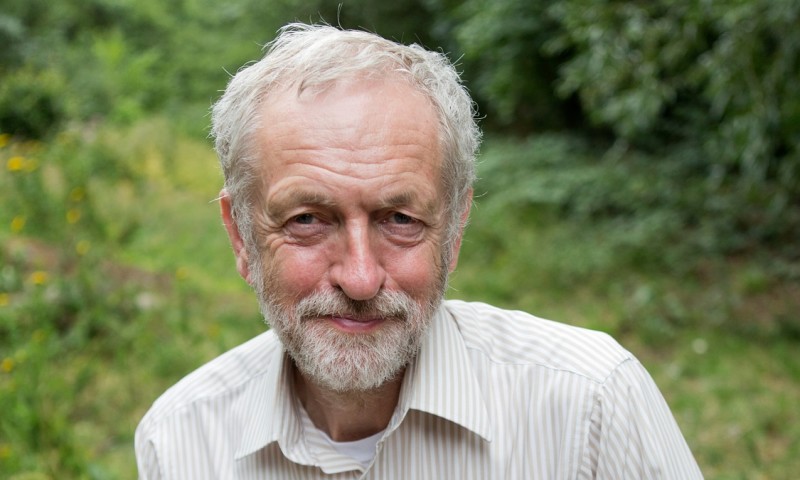 UK Labor Leader comes out for Distributed Power
UK Labor Leader comes out for Distributed Power
Says Britain must empower citizen suppliers and direct private investment into green technology
“This week world leaders have begun the final phase in their attempt to reach a deal to keep global warming below 2C. Such a deal would be an important step in the fight against climate change, even if it seems likely that the targets and mechanisms will not go far enough. But we need to look beyond Paris and ask ourselves more fundamental questions that the problem of global warming raises.
I believe that climate change is a problem of imagination — of the limits to our imagination. It cannot be solved unless we open up our imaginations, unless we begin to think, talk and act as if we cared about the future.
This means we must use our imaginations to ask: what would our world look like if we allow global temperatures to rise by 2-3C? It would be a world with a hostile climate: more of the storms, flooding and droughts we have begun to see over the last few decades. Events such as the flooding in Cumbria this week will become more frequent — these are entirely consistent with scientists’ predictions.
Moreover, if we do not turn back this government’s austerity drive, our weakened public services will not be able to cope with the consequences of such events. Despite Cameron’s pledge that “money is no object” in dealing with flooding, savage cuts to public services and flood defences have left people vulnerable. Yet again, this government has failed to deliver on its promises.
A world 2-3C warmer would also be a world of war, in which millions will be displaced and forced to migrate in search of peace and security.
We must imagine this world not because it is a remote possibility, but because unless world leaders are more ambitious in their aims — both in Paris and beyond — this will be the world that humanity has created for itself. The IMF has warned us: “Human fortunes will evaporate like water under a relentless sun if climate change is not checked soon.”
However perilously close we may be to this world, we must also imagine the world we want to create. That world is a more equal world, a more just world, and a world in which where you live is based on the quality of the air you breathe. It is a world in which businesses are producing products and services we cannot yet imagine, but with lower energy and operating costs.
We want a world where governments shape rules that promote public goods — where they protect the ultimate public good of a stable climate in which humanity can survive and prosper.
To do that, we need a state that invests. We need an entrepreneurial, nimble state that neither wages war with markets nor bows in their presence, but shapes them. It is the rules set out by the state that allows markets to flourish.
This means we can shape competitive markets and shape the goods they produce, so that we can all start making the right choices for our future. We need carbon budgeting to be the centrepiece of trade and commerce, taking the planet back to sustainable levels of CO2 emissions.
But governments should not be the only actors on the stage; they cannot achieve this world alone. All of us must remake the material world, together. We must be confident in the technology we have and the technology we can invent. We must get organised, harnessing the extraordinary powers of connectivity humanity has developed for itself.
All of this must be driven by democracy in the production of energy, following Germany’s lead, in which an energy market previously dominated by four big corporations has been transformed into one with two million citizen-suppliers. Democracy in developing energy jobs: three quarters of all jobs in Germany’s energy transition are now involved in turning homes into “energy-zero buildings”.
In the world we want, ordinary people, trade unions and businesses will have the power to shape the future they want, not just through government but because democracy is meaningful and real.
How do we get to this world? First, the transition must be just. Environmental politics must include people working in today’s economy. Governments must invest in the skills and technologies we need to take advantage of the millions of new jobs that the low-carbon sector can create, protecting working families in the transition.
Second, we must resist measures set out by our government that take us backwards. The Conservatives simply do not understand the huge opportunities that the low-carbon sector offers, or that investment and borrowing can enable future generations to contribute to the upfront costs of a fairer, greener world. They are blinded to simple economic logic: that now is the time to invest, when the cost of borrowing is as low as it ever has been.
Third, governments must not only commit public investment to cleaner energy and infrastructure, but channel private trillions too. They must use a range of policy levers to direct investment and shape markets.
Fourth, all of us — towns and cities, businesses and investors, activists and trade unions — must localise the production and consumption of energy. Already 6,500 towns and city regions in Europe have committed to becoming tomorrow’s sustainable cities. We must follow their lead.
I was elected on a message of hope. Call for the world you want; do not accept the one you have. This is a world we can create for ourselves: through our collective efforts, through democracy and investment.”